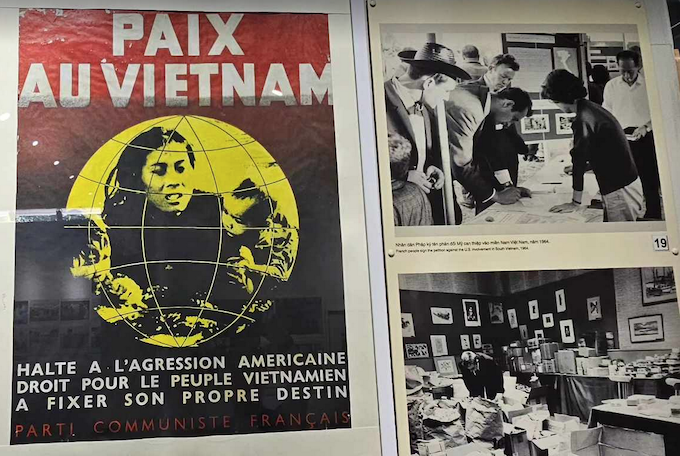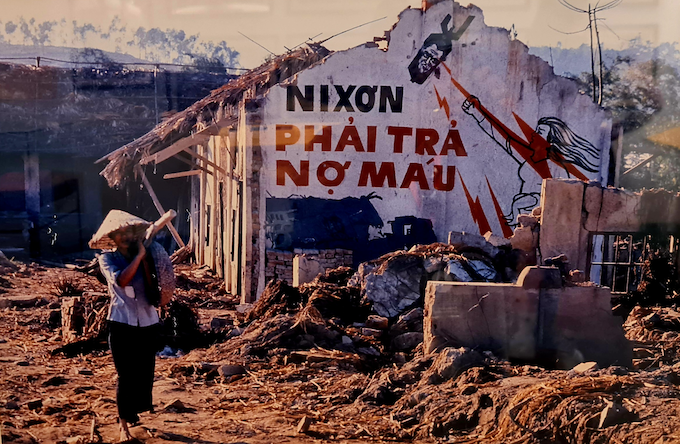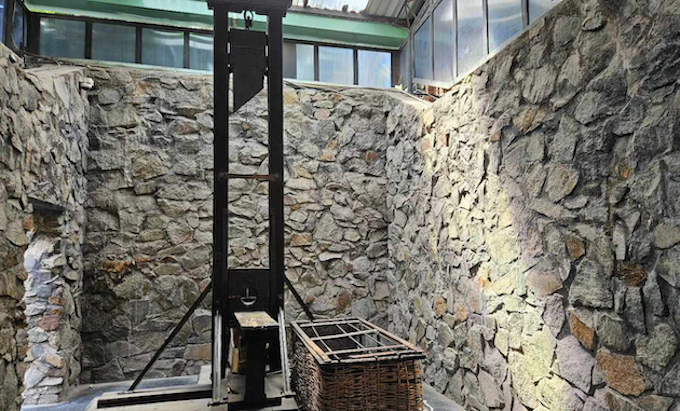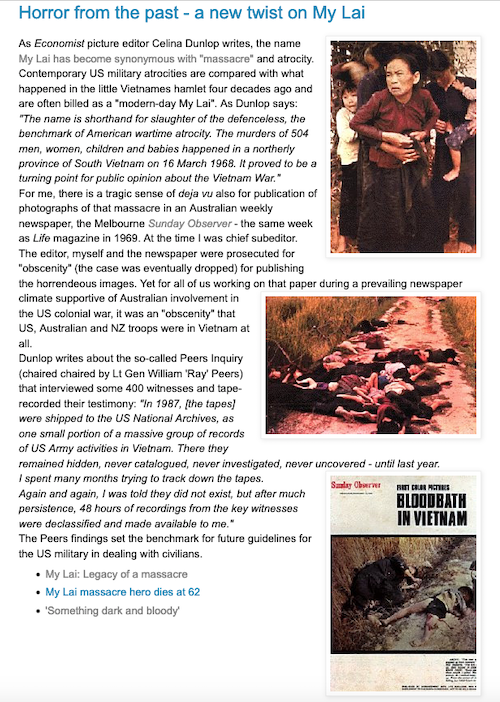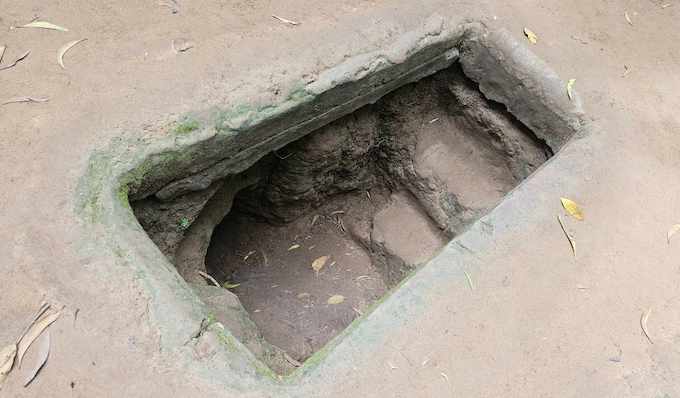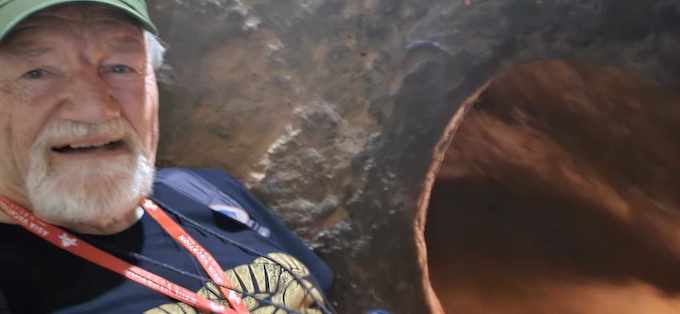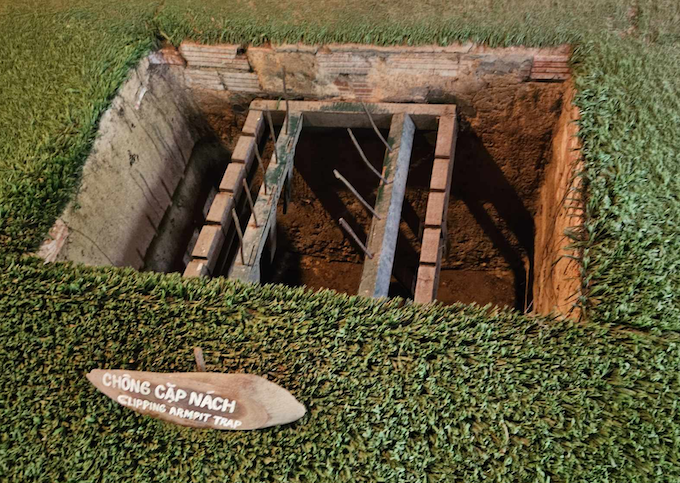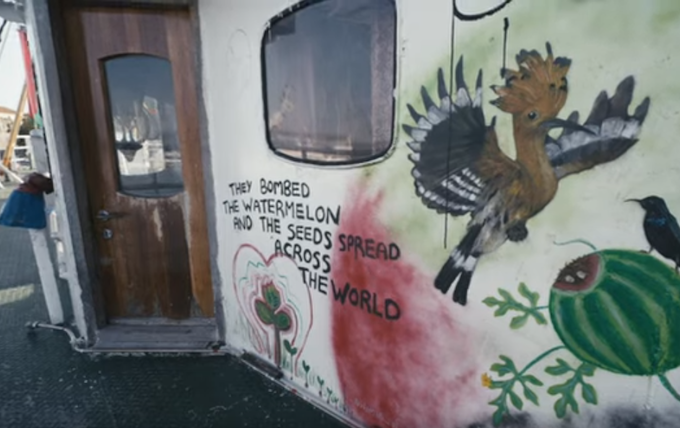Note: Update of my previous article from March 2008.
Except for a brief interlude during the Eisenhower administration, United States’ support for Israel, in its genocide of the Palestinian people, has been an ongoing process since the Truman administration recognized the state. Contemporary events prompt a review of the post-World War II history that resulted in the formation of a nation that had no visible name until David Ben Gurion proclaimed, on May 14, 1948, the state as Israel.
Books, articles, documents, memoirs and letters from past generations detail how a small group of insiders prevailed over recommendations from an experienced and famous U.S. State Department of “wise men.” It is the story of the Zionist mission. It is the story of apartheid Israel.
The impact, legacy and relevance of the 1946-1948 events to today’s occurrences have not been sufficiently explored. Under the surface are the hidden messages and obscure drives that shaped the past and extended into the future. A more complete analysis of the legacy from Truman’s rapid recognition of the state of Israel explains the past and clarifies the present.
In the initiation of a trend, supporters of those who derailed State Department Near East policy were able to integrate themselves into Middle East policy and subsequently shape global policies. Turmoil from initial events provoked a continuous turmoil in the Middle East. Almost all administrations framed Middle East polices to favor the Zionist cause.
The Truman State Department consisted of leading luminaries of U.S. State Department history. George C. Marshall, United States military chief of staff during World War II, first military leader to become Secretary of State and later a Nobel Prize recipient, had Loy Henderson, Robert A. Lovett, Dean Rusk, Warren Austin and other known figures in his department. Many of them were not entirely supportive of the UN partition plan; their State Department followed Truman’s directives until sensing the partition plan would be counterproductive and cause more violence than it intended to resolve. The record indicates the State Department attempted to modify Truman’s policy that favored partition. They sought a temporary UN trusteeship.
President Truman postured himself as motivated by a conviction — the displaced Jews who had survived the World War II Holocaust needed and deserved an immediate home. The U.S. president vacillated in his arguments and contradicted himself in statements. He railed vehemently against the steady stream of advocates for a Jewish state and retained several presidential advisors who pursed one purpose; promoting a new Jewish state. A suspicion remains that his humanitarian motives had a political content; the Democratic Party craved the financial and voting support of Zionist organizations and their allies.
Clark Clifford, Truman’s chief consul and ardent promoter for a Jewish state, quickly became one of the president’s closest assistants. He was not Truman’s principal assistant, a post held by John Roy Steelman, and behaved as if he were titular chief of staff by acting unilaterally and somewhat dubious in actions that proved decisive. The evidence points to Clifford favoring election expediencies in developing policies that led to the creation of the state of Israel.
The story begins at the closing shots of World War II and with the refugees in displaced persons camps.
The plight of the displaced persons could not be easily resolved. The United States was involved in returning millions of its armed forces to their homes, in the repatriation of captured enemy soldiers, and in preventing mass starvation in Europe. A possibility of a post-war depression and mass unemployment guided America’s political thinkers. In addition, the U.S. immigration laws did not permit the immediate admittance of the displaced persons, nor could it show favoritism. Unable to find a legal mechanism that would bring them to America, Truman petitioned Great Britain to allow them to immigrate to Palestine. British Prime Minister Clement Attlee cited the 1939 White Paper, which specified a definite number of applicants, as a limiting factor. He also suspected new immigrants would burden Britain’s over-stressed mandate and add troubles to the existing emergency.
Truman could not prevail over Attlee. What to do? After presentations by an Anglo-American inquiry commission and a joint cabinet committee (Morrison-Grady) failed to achieve welcoming peace proposals, a tired and irked British government requested the UN General Assembly to consider the Palestine problem. On May 15, 1947, the UN created the United Nations Special Committee on Palestine (UNSCOP). The committee outlined a partition plan with the city of Jerusalem under a UN trusteeship. Truman instructed the State Department to support the partition plan. UN Ambassador Warren Austin and the state department’s Near East Division, led by Loy Henderson, doubted that partition could resolve the situation.
During the months of UNSCOP’s efforts, Truman complained of pressure by pro-Zionist groups. In Volume II of his Memoirs, p.158, the former president relates:
The facts were that not only were there pressure movements around the United Nations unlike anything that had been there before but that the White house too, was subjected to a constant barrage. I do not think I ever had as much pressure and propaganda aimed at the White House as I had in this instance. The persistence of a few of the extreme Zionist leaders — actuated by political motives and engaging in political threats — disturbed and annoyed. Some were even suggesting that we pressure sovereign nations into favorable votes in the General Assembly.
This harsh rhetoric was mild compared to other Truman’s statements concerning the Zionists and its American leaders, especially Cleveland’s Rabbi Silver. In a memorandum to advisor David K. Niles, the president wrote, “We could have settled this whole Palestine thing if U.S. politics had been kept out of it. Terror and Silver are the contributing cause of some, if not all of our troubles.”
On November 29, 1947, the UN General Assembly approved the UNSCOP Partition plan. Approval only meant agreement in principle. No effective means for transferring the principle into an operational result had been determined. The lack of enforcement provoked more conflict in Palestine. Each side strived to gain territory and advantage. The uncontrolled mayhem steered the U.S. State Department to adopt the concept of a temporary trusteeship for the area. Believing it had President Truman’s approval, the State Department instructed the U.S. delegation to the United States to petition for a special session of the General Assembly and reconsider the Palestinian issue. In his presentation, UN Ambassador Warren Austin proposed the establishment of a temporary trusteeship for Palestine.
Truman denied giving a green light for the presentation and wrote in his diary, which has been quoted in “The Private Papers of Harry S. Truman, P.127. “This morning I find that the State dept. has reversed my Palestine policy. The first I knew about it is what I see in the papers. Isn’t that hell!” His infuriation arose from embarrassment of having assured Zionist leader Chaim Weizmann, whom he highly regarded, that the U.S. would not depart from the Partition Plan and would not entertain a temporary trusteeship. George McKee Elsey, in his memoir, An Unplanned Life, p.161, supplied evidence of Truman’s awareness and permission for the speech. White House staff member Elsey writes:
In fact, as I quickly learned in delving into the record and querying White House and State Staff, Truman had personally read and approved some days earlier the Austin speech, which outlined a plan for U.N. trusteeship of Palestine when the British Mandate ended in May in lieu of partitioning the area into separate Jewish and Arab territories.
The May 15 date for the British exit neared, and the Zionists prepared to declare their state and present their credentials for recognition. Contradictions in U.S. Near East policy led to policies that became completely confusing.
In a speech to the UN General Assembly, March 25, 1948, President Truman clarified his nation’s temporary endorsement of a UN Trusteeship for Palestine that did not prejudice partition. The pleased State Department instructed Ambassador Austin to proceed with deliberations of the Trusteeship proposal. As if not cognizant of the UN trusteeship discussion, Truman prepared to recognize the soon to be formed state. On May 12, two days before an expected announcement by the Jewish Agency in Palestine, an angered George C. Marshall and his assistant Robert Lovett confronted Truman and demanded reasons for the haste in wanting to grant recognition. The president selected his counsel Clark Clifford, who was not involved in foreign policy, to clarify the reasons for the intended recognition.
Clifford’s principal reasons for instant recognition: The UN Security Council could not obtain a truce in hostilities; partition would happen in fact; the U.S. would eventually have to recognize a new state, and it was preferable to get the jump on the Soviet Union.
Clifford’s arguments are easily rebutted. (1) More significant than whether or not the Security Council could obtain a truce was that the UN council was engaged in discussions hoping to achieve a truce. Recognition would close the discussions and prevent the truce. (2) If the Trusteeship was approved and implemented, an entity unilaterally invoking a partition scheme would violate the UN dictates. (3) Clifford’s simple explanation that the U.S. must recognize the new state quickly because the U.S. must recognize the new state was a statement and not a clarification. (4) As for the Soviet Union, Clifford echoed the alarm of Phillip C. Jessup, a member of the U.S. delegation to the UN, who, according to Robert J. Donovan in his book Conflict and Crisis, The Presidency of Harry S. Truman, p.380, cabled UN affairs officer Dean Rusk that the Soviet Union wanted recognition to use Article 51 of the UN charter to protect the new state and thus gain a foothold in the Middle East. This view is specious — Article 51 pertains to defense of member states and the new nation did not become a UN member until one year later. Besides, wasn’t it advantageous for the U.S. to have the Soviet Union recognize the new state before it did? The State Department could then claim it had no choice and would lose less favor with the Arab states.
Marshall questioned why a domestic affairs advisor was determining foreign policy. Truman replied that he had invited Clifford to make a presentation. Obviously, Truman did not want history to record his words and asked his campaign manager to speak for him. Sensing that politics and the forthcoming presidential election had become overriding factors in a significant foreign policy decision, the dedicated George C. Marshall uttered one of the most insulting words ever directed by a cabinet official to a president, “If you follow Clifford’s advice, and if I were to vote in the next election, I would vote against you.” Clark Clifford’s Memoir, Council to the President, P.13, mentions that the Secretary also insisted that these personal remarks be included in the official state department record of the meeting. Whew! (Vice President Harris take note.)
Fearing that the transfer of advice on Near East affairs from the state and defense departments to inexperienced advisors and non-professional lobbyists would continue, Assistant Secretary of State Robert Lovett determined to change Truman’s intentions. For some unknown reason, rather than calling the president directly, he channeled his inquiries through Counselor Clark Clifford. The president’s counselor didn’t speak to the president about Lovett’s urgencies, but assumed a new role ─ he spoke for the president. In response to Lovett’s request to ask Truman to delay recognition, Clifford confesses in his memoir, P.22,
Saying (to Lovett) I would check with the President, I waited about three minutes and called Lovett back to say that delay was out of the question. It was about 5:40 and the State Department has run out of time and ideas.
Within a few minutes, one of the most bizarre sequence of events that had ever occurred in U.S. diplomacy unfolded.
Clifford states he called Dean Rusk and asked the UN affairs officer to inform Warren Austin, chief of the U.S. delegation to the UN, that the president intended to recognize the new Near East state within fifteen minutes. His called bypassed protocol; usually the assistant secretary of state should be informed and that person has the obligation to inform other staff members of decisions. Clifford quotes a surprised Rusk as retaliating with the remark, “This cuts directly across what our delegation had been trying to accomplish in the General Assembly, and we have a large majority for it.” Rusk supposedly called Warren Austin who went home without bothering to inform the U.S. delegation of the news.
Truman’s rapid signing (within 11 minutes) of the document that gave de facto recognition to the ‘new state of Israel’ angered members at a United Nations meeting on the Trusteeship. After learning the new state would be called Israel, the words ‘Jewish state’ were crossed out and the words ‘state of Israel’ were inserted.
May 14 was an enviable day for the new state of Israel, but an unpleasant day for the 160 year old American republic. The diplomatic solution to the Near East crisis had been settled, but the conflict has not been resolved.
What does history show?
History supports the conviction that the Partition Plan would not resolve the hostilities. The State Department concern for rapidly recognizing a new state, without knowledge of its constitution or composition, was diplomatically correct and prescient. The quick recognition of a state for the Jewish population prevented the UN from finishing a discussion of providing mechanisms to prevent more bloodshed and providing proper protection for the state’s large Palestinian population. George Marshall’s State Department acted honestly, with knowledge, and with the conviction it served the interests of the United States
President Harry S. Truman correctly perceived the tenacity of the Zionists. He erred in his judgment that the Partition Plan would resolve the conflict. The unusual rapid response for recognition of the new state, without awareness of its composition, signified a pardon of the excesses committed by Irgun and Haganah against civilian populations and certified the exclusion of any Palestinian voice in the new government. Truman never asked what would happen to the 400,000 Palestinians who had no representation in the new state. Evidently, he didn’t consider that the placing of 100,000 displaced Jews into Palestine would also mean the placing of weapons in the hands of many of these persons and, together with instant recognition, would reinforce the eventual displacement of 900,000 Palestinians. The European DP camps were temporary shelter for those who would undoubtedly find permanent homes and citizenship; the UNWRA refugee camps became permanent homes for several million Palestinian displaced persons who languish with stateless identification.
The post-election provided Truman with an opportunity to show he was not captive to the Zionist enterprise. What did he do? He only half-heartedly pressured Israel in 1949 to resettle displaced Palestinians. This token maneuver is verified by Joshua Landis. In a paper published in The Palestinian Refugees: Old Problems – New Solutions, University of Oklahoma Press: Norman, OK, 2001, p. 77-87, Landis writes,
McGee threatened the Israeli ambassador to the U.S. that if Israel did not accept 200,000 refugees, the US would withhold $49 million worth of Export-Import Bank loans to Israel. The Israeli Ambassador was unimpressed with McGhee’s threat and responded that McGhee “wouldn’t get by with this move.” The Israeli Ambassador boasted that “he would stop it.”
True to his word, the Ambassador was able to nip McGhee’s threat in the bud. That same afternoon, the White house phoned McGhee to say that the President would have nothing to do with withholding loans to Israel. Never again would a State Department official under President Truman attempt to intimidate Israel on the issue of refugees.
Landis claims the U.S. President tried to resolve the Palestinian DP problem by offering the Syrian government $400,000,000 dollars in exchange for settling up to 500,000 Palestinians in the fertile plains between the Tigris and Euphrates rivers. A president of a nation was willing to burden his own nation in order to relieve Israel of its obligation to the Palestinian refugees. In retrospect, he behaved circumspect and his compassion for victims depended on their value to the Democratic Party.
A humanitarian light brightened the parade of lobbyists for partition and this light managed to convince many of the validity of their cause. Later U.S. government Middle East policies repeated the intense lobbying that guided Truman’s 1948 decisions and subdued the power and recommendations of government agencies.
The darkened perspective, due to Israel’s oppression of the Palestinians, has not deterred the forces who continue to obtain a U.S. foreign policy that favors their direction. The memory of Truman’s electoral victory, which defied all predictions, continues to make prospective candidates for national office sense that winning elections depends upon support from those who also support Israel.
The legacy of the 1946-1948 events is well described. Control of discussions pushed a previous U.S. administration to provide a legal frame for creation of the state of Israel. Control of discussions continued and impelled contemporary administrations to provide the support for that frame. Without U.S. support, Israel’s authentic moral, political, economic and military character would have been exposed and its structure weakened. The Israeli state might have collapsed.
The genocide started in 1947, from an improbable ‘there’ and has continued until the impossible ‘here.’ By supporting Israel, the democratic and freedom loving United States has made the improbable a sickening and frightful reality.
The post
The 1948 Recognition of Israel: Impact, Legacy, and Relevance first appeared on
Dissident Voice.
This post was originally published on Dissident Voice.






